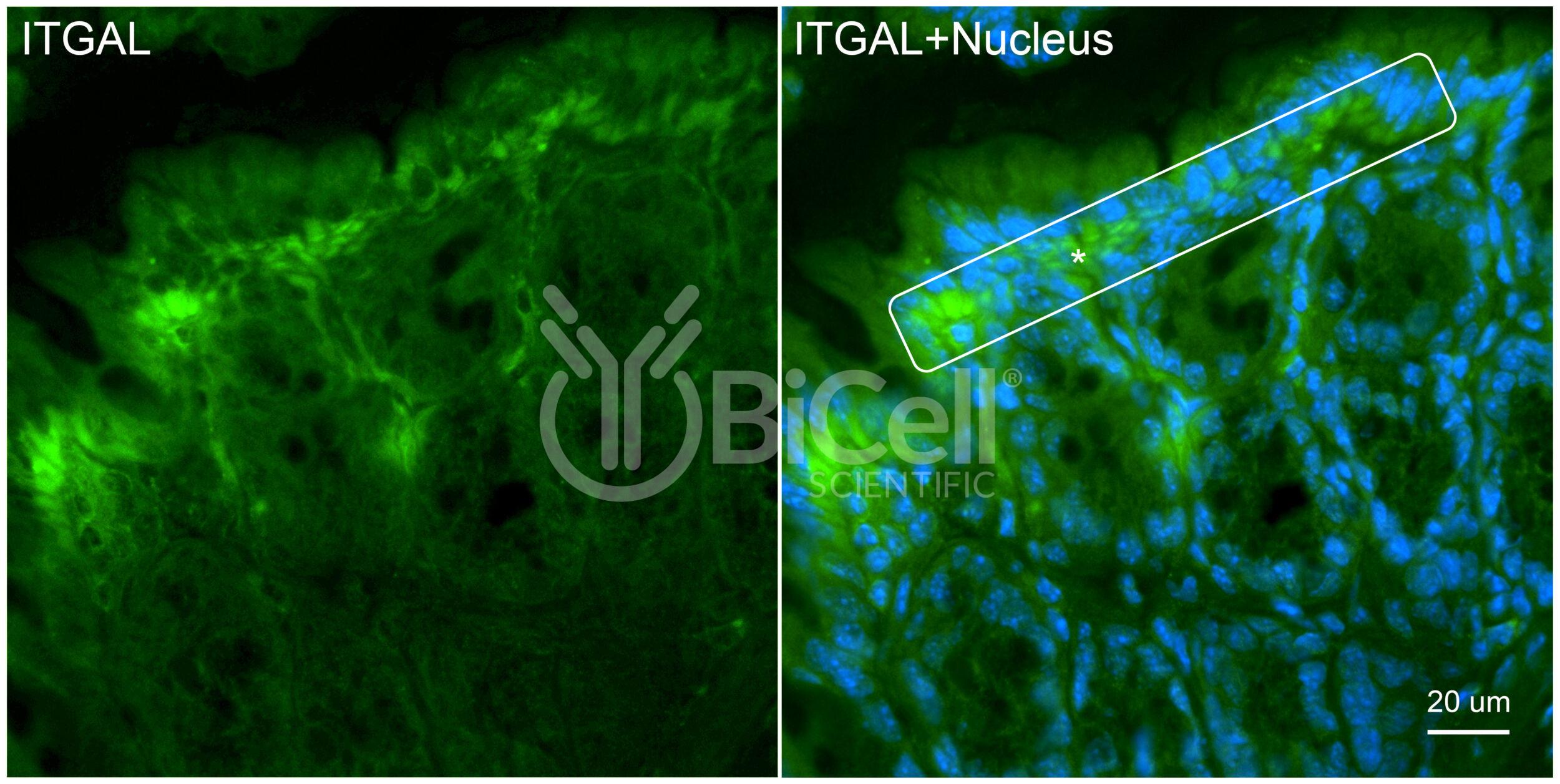Integrin alpha-L (ITGAL or CD11a) Antibody
Description
Anti-Integrin alpha-L (ITGAL or CD11a) antibody is validated on mouse tissue and recommended for immunofluorescence labeling, IHC, or western blot of materials from rodent tissues. Integrins are transmembrane proteins that facilitate cell-extracellular matrix interactions or focal adhesions. Ligands for Integrins include fibronectin, vitronectin, collagen and laminin. An integrin molecule is composed of two protein subunits, alpha and beta. Each subunit consists in an extracellular domain, a single transmembrane domain and a cytoplasmic domain. Integrin, alpha L (antigen CD11A (p180), lymphocyte function-associated antigen 1; alpha polypeptide), also known as ITGAL, is an integrin protein that is encoded by ITGAL gene in human. Integrin alpha-L chain interacts with the beta 2 chain (ITGB2) to form the integrin lymphocyte function-associated antigen-1 (LFA-1), which is expressed on all leukocytes. LFA-1 plays a central role in leukocyte intercellular adhesion through interactions with its ligands, ICAM.
| Application: | Immunofluorescence, Immunohistochemistry, Western Blot |
|---|---|
| Clonality: | Polyclonal |
| Concentration: | 0.25 mg/ml |
| Conjugation: | Unconjugated |
| Host: | Rat |
| Immunogen: | Synthetic peptide (13-aa) derived from the C-terminal cytoplasmic region of mouse integrin alpha-L protein |
| Isotype: | IgG |
| Purification: | Affinity Chromatography |
| Reactivity: | Mouse, Rat |
| Species Homology: | Synthetic peptide sequence is identical to rat sequence (showing 30.8% homology to human sequence) |
| Storage: | -20°C |
| Storage Buffer: | PBS, pH 7.2, 0.1% Sodium Azide |

